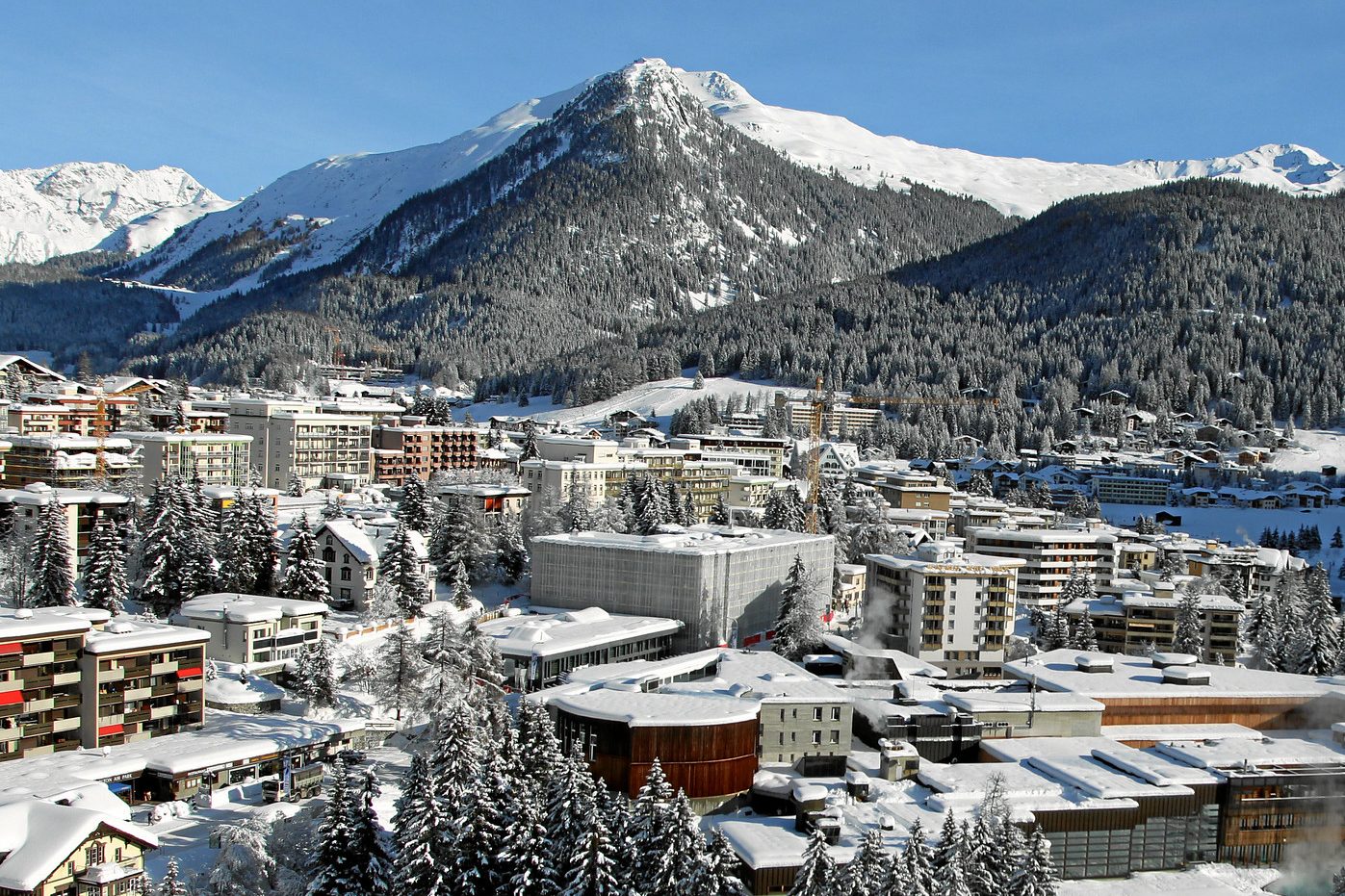Skift Take
Having spent the last six years of my career focused on the "journey," which is how all of us experience travel, solutions to the litany of requirements ahead are manageable. But today, our building blocks for managing tomorrow’s burgeoning global travel are only at a starting point.

For our Viewpoint series, Skift invites thought leaders, some from the less obvious corners of travel, to join in the conversation. We know that these independent voices are important to the dialogue within the industry. Our guest columnists will identify and shape what global trends and through lines will define the future of travel.
I was privileged to attend this year’s World Economic Forum annual meeting in Davos, as leader of one of the organization’s “Technology Pioneer” companies. For those who haven’t attended, Davos is incomparably global and diverse in its composition, topics, and attendees.
When I say the forum is diverse, I mean the town becomes a village of corporate and government titans, academic and scientific leaders, cross-sector start-up entrepreneurs from every continent, and even a group called “global shapers” dedicated to specific causes such as climate, women’s rights, or labor. Every age range, race, gender identity, and dress code is visible.
The World Economic Forum founder, Klaus Schwab, opened the meeting and set a tone for the forum when he referred to the state of the world as a “messy patchwork.” Dr. Schwab was referring to the mind-numbing complexity of leadership challenges, issues and agendas faced by global leaders.
It was no surprise, then, to find that much of the Davos gathering was dedicated to meaningful discussions of how leaders can manage this increasingly complex environment in which we all operate. For the travel industry, that environment includes a heightened global commitment to dealing with climate change. It includes the very real threats of overtourism on fragile ecosystems, wildlife, and local communities. It includes the transformation of the energy economy and the integration of new energy sources, supply chains, and technologies. It includes the challenges of globally disparate travel regulations, systems, and technologies. And on and on.

Despite concerns of economic headwinds, the vast array of initiatives and huge financial commitments to climate and energy transformation were unfolding before our eyes at Davos. A trillion dollars has been committed by the U.S. and EU to spur climate progress. Every sector was engaged in problem-solving, commitments and collaboration to make progress. The travel industry, which produces roughly 8 percent of the world’s greenhouse gasses, also has giant initiatives underway.
For Related Reading, Check Out Our Skift 2023 Megatrend “Travelers Learn to Live With Permanxiety.”
Yet, Davos underscores the global and systemic nature of the challenge here. Solutions will go deep within industries and their supply system, but they will also grow broad to adjacent technology and ecosystems. That’s increasingly clear, and a deep dive at WEF on the building of global carbon markets, or investments in global forestry health are but two examples. Momentum and action on climate change is real, but the complexity of the topic is enormous.
A “messy patchwork” would also aptly characterize the complexity associated with traveling today. My fellow Davos attendees, some of whom had the benefit of administrative support and a business class (or better) seat, commented on the challenges of getting from their hometowns to the center of Europe’s most sophisticated country. For my part, I used two airlines, two hubs, two hotels (one family owned), two trains, and a transfer van to arrive at my destination.
Once I was safely within the bubble of the elaborate Davos meeting complex, I was immersed in a situation that is akin to managing a Disney World visit. The forum has a wonder-app called TopLink to help you manage your participation. It works terrifically for arranging your calendar at the conference, connecting with other attendees, reserving your seat at the most sought-after panels, and reading key communications such as session findings and announcements. But like Disney, WEF-world is completely disconnected from the rest of the travel universe and serves as a stark reminder of how complicated travel is today.
We’ll see high double-digit growth rates of this type of more complex travel in the decade ahead. Though many of today’s best industry programs are magnificent and getting better, it’s clear that this type of travel is beyond today’s tools; beyond the capabilities of alliances, partnerships, loyalty networks, airport and immigration system interfaces, and language/cultural personalization. And, understandably, today’s travel apps only rarely attempt to cross their natural “borders.”
Having spent the last six years of my career focused on the “journey,” which is how all of us experience travel, solutions to the litany of requirements ahead are manageable. But today, our building blocks for managing tomorrow’s burgeoning global travel are only at a starting point. Today’s travel leaders confront a numbing set of priorities related to workforce, resiliency, digital transformation, deepening customer loyalty, rebuilding the balance sheet, and dealing with vexing competitive forces. That’s a lot and it’s only a partial list. Despite these challenges, we still need to focus on the critical foundation needed for travel’s future.
Davos’ conference theme this year was “Collaboration in a Fragmented World.” In this idea lies, perhaps, the best way to tackle the patchwork Dr. Schwab so well observes. Complexity in the world and in travel is only accelerating, and the pace will not relent. The reward for collaborating and working systematically on a new framework for travel is a more rational system that translates into customer satisfaction, profitability, and a more sustainable world. Time for a rethink? We shall see.
Jeff Katz is the founder and CEO of Journera, the travel technology company named by The World Economic Forum as a Technology Pioneer. Previously, he was the founding CEO of Orbitz Worldwide, CEO of Swissair and an executive at both Sabre and American Airlines. This was Katz’s first time back to Davos since the late 1990s.
Video of the “Travelling Again DIfferently” panel from Davos.
The Daily Newsletter
Our daily coverage of the global travel industry. Written by editors and analysts from across Skift’s brands.
Have a confidential tip for Skift? Get in touch
Tags: business travel, conferences, davos, events and conferences, leadership, viewpoint
Photo credit: The Swiss village of Davos welcomes leaders from dozens of industries at the World Economic Forum's annual meeting. World Economic Forum / Flickr
